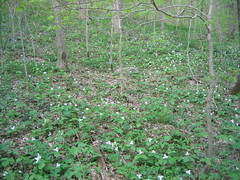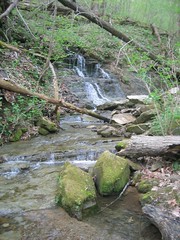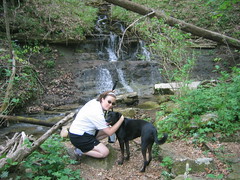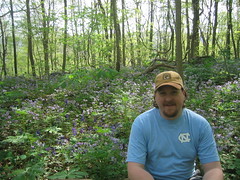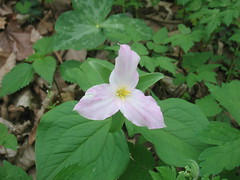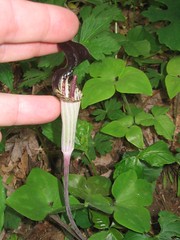Following up Jason Kottke, I’ve listed film critic Jim Emerson’s list of 102 movies that you should see before you can consider yourself movie literate. I’ve bolded all the ones I’ve seen.
2001: A Space Odyssey
The 400 Blows
8 1/2
Aguirre, the Wrath of God
Alien
All About Eve
Annie Hall
Apocalypse Now
Bambi
The Battleship Potemkin
The Best Years of Our Lives
The Big Red One
The Bicycle Thief
The Big Sleep
Blade Runner
Blowup
Blue Velvet
Bonnie and Clyde
Breathless
Bringing Up Baby
Carrie
Casablanca
Un Chien Andalou
Children of Paradise / Les Enfants du Paradis
Chinatown
Citizen Kane
A Clockwork Orange
The Crying Game
The Day the Earth Stood Still
Days of Heaven
Dirty Harry
The Discreet Charm of the Bourgeoisie
Do the Right Thing
La Dolce Vita
Double Indemnity
Dr. Strangelove
Duck Soup
E.T. — The Extra-Terrestrial
Easy Rider
The Empire Strikes Back
The Exorcist
Fargo
Fight Club
Frankenstein
The General
The Godfather, The Godfather, Part II
Gone With the Wind
GoodFellas
The Graduate
Halloween
A Hard Day’s Night
Intolerance
It’s a Gift
It’s a Wonderful Life
Jaws
The Lady Eve
Lawrence of Arabia
M
Mad Max 2 / The Road Warrior
The Maltese Falcon
The Manchurian Candidate
Metropolis
Modern Times
Monty Python and the Holy Grail
Nashville
The Night of the Hunter
Night of the Living Dead
North by Northwest
Nosferatu
On the Waterfront
Once Upon a Time in the West
Out of the Past
Persona
Pink Flamingos
Psycho
Pulp Fiction
Rashomon
Rear Window
Rebel Without a Cause
Red River
Repulsion
The Rules of the Game
Scarface
The Scarlet Empress
Schindler’s List
The Searchers
The Seven Samurai
Singin’ in the Rain
Some Like It Hot
A Star Is Born
A Streetcar Named Desire
Sunset Boulevard
Taxi Driver
The Third Man
Tokyo Story
Touch of Evil
The Treasure of the Sierra Madre
Trouble in Paradise
Vertigo
West Side Story
The Wild Bunch
The Wizard of Oz
Now for the part that everyone loves about lists: what’s not on here? That is, what do I think is necessary for a degree in film literacy? Well, he did hit at least one film from my favorite directors (Fincher, Kubrick, Kurosawa) except Gilliam (and no, Holy Grail doesn’t count as a Gilliam film). This list was done in 1999, so there are no films from the last 6 years on there. Are there any truly great films from the last 6 years? Or just things he missed?
I’d be tempted to include a handful in my list: Rushmore, The Shining, Rosemary’s Baby, The Ice Storm, Brazil, Memento, El Mariachi, Crouching Tiger. And then there are the specifics to generational literacy: Pretty in Pink, The Breakfast Club, Dead Poets Society, Heathers, Pump up the Volume.
So that’s 55 of them I’ve seen…over half. I’m going to add all of the ones I haven’t seen to my Netflix queue, and work my way through. For you librarians out there, how many of these are in your library?






